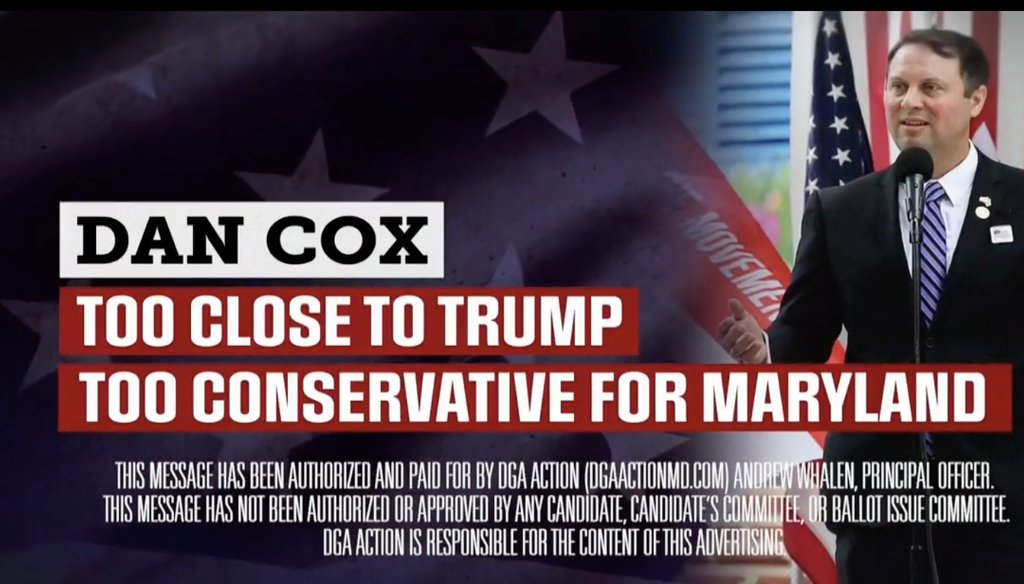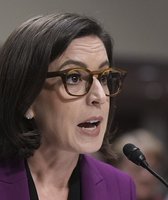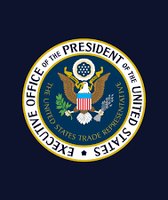Stand up for the facts!
Our only agenda is to publish the truth so you can be an informed participant in democracy.
We need your help.
I would like to contribute

An ad aired by an affiliate of the Democratic Governors Association that criticized Republican gubernatorial candidate Dan Cox in Maryland, but also potentially making him more attractive to GOP primary voters. (Screenshot)
If Your Time is short
• In a move that some Democrats have criticized as risky, Democratic groups in a number of Senate, House, and gubernatorial races have paid to air ads focused on GOP primary candidates who are more conservative, or more closely aligned with former President Donald Trump, than their competitors in the GOP field.
• Sometimes, though not always, the end result is that the more conservative or Trump-aligned candidate wins the nomination which, according to the theory driving the strategy, would make it easier for Democrats to win in the general election.
• Observers, including some Democrats, worry that this breaches the rules of fair play — or that in a challenging midterm environment, a Trump-aligned candidate elevated by Democratic advertising could win in November.
This primary season, Democrats have taken to the airwaves — not just in Democratic primaries, but in Republican ones, too.
In a move that some Democrats have criticized as risky, Democratic groups in a number of Senate, House, and gubernatorial races have paid to air ads focused on GOP primary candidates who are more conservative, or more closely aligned with former President Donald Trump, than their competitors in the GOP field.
The Democratic-backed ads do not praise these chosen GOP candidates, as a traditional ad endorsing a candidate might. Rather, these spots characterize the candidates’ positions as being too far to the right for voters in that state or district.
The ads tend to focus on the candidates’ allegiance to Trump and their positions on polarizing issues such as abortion, guns, the integrity of the 2020 election results and COVID-19 restrictions. Most of the ads close with a line summarizing the view that a candidate is "extreme and way too risky" for the electorate, or "too close to Trump, too conservative" for voters.
The Democrats sponsoring these ads are betting on a kind of Jedi mind trick: that what spooks Democratic voters as too far to the right would be exactly what many Republican primary voters would want.
Sign up for PolitiFact texts
In many cases, though not all, the end result is that the more conservative or Trump-aligned candidate wins the nomination, theoretically making it easier for Democrats to win in the general election, when a much more ideologically diverse electorate casts its ballots.
This method doesn’t rely on spreading falsehoods about a candidate, or by dishonestly praising a candidate whose positions one loathes. Rather, the tactic is based on criticizing — but also elevating — a candidate’s positions to a primary electorate that would be receptive to them. It’s the kind of approach that would not be out of place in a general election, once the nominees are chosen. And ultimately, it wouldn’t work unless Republican primary voters were receptive to these portrayals.
Historically, both parties have dabbled in primary meddling. Just two years ago in a Senate race in North Carolina, a Republican-backed group ran ads for Erica Smith, an underdog in the Democratic primary, as the one "proven progressive" on the ballot, including her support for "Medicare for All" and the Green New Deal. In the end, Democratic voters didn’t bite, instead choosing the more moderate candidate.
But Democrats have used this tactic in a number of high-profile contests, notably when Democratic Sen. Claire McCaskill ran ads during the primary to highlight Republican Todd Akin’s controversial comments about rape in 2012. Akin won, and McCaskill defeated him in November.
The strategy seems to have gained momentum this year — and some Democrats are concerned. Part of their worry stems from the seeming violation of the rules of fair play. Another reason is more practical: a fear that in a challenging midterm political environment, the tactic could help lead a Trump-aligned candidate to win against a Democrat in November.
David Axelrod, a prominent Democratic strategist close to former President Barack Obama, tweeted, "Disappointing that (Democrats) are trying to help Trump exact vengeance." He reiterated that point Aug. 1, the day before the primary.
Here, we’ll take a closer look at some of the races in which Democratic groups ran ads criticizing GOP primary candidates as too conservative.
• Pennsylvania governor. In the highly competitive state of Pennsylvania, Attorney General Josh Shapiro, who was unopposed in the Democratic primary for governor, ran an ad during the primary addressing Republican Doug Mastriano.
The ad said partly that Mastriano "wants to outlaw and criminalize all abortions. … He opposes any exceptions for rape, incest or even the life of the mother." The ad goes on to say that Mastriano "wants to ban gay marriage."
The ad also shows a video clip in which Mastriano is asked whether global warming is real. He responded, "It is not, it's fake science."
The ad mentions that on Jan. 6, 2021, Mastriano was on the U.S. Capitol grounds, and shows a clip of him saying, "As governor, I get to decertify any or all machines in the state." The narrator concludes the ad by saying, "Doug Mastriano, he's extreme and way too risky for Pennsylvania."
Mastriano, who belongs to a coalition of QAnon-linked candidates running in 2022 statewide elections, ended up winning the primary. It’s unclear whether Mastriano might have won even if Shapiro’s ad had never aired. The ad began airing in early May, and Mastriano was already up by between 8 and 12 points against his nearest primary rival; he won by more than 23 points.
• Maryland governor. The Democratic Governors Association ran an ad focused on Dan Cox, a Trump-endorsed candidate. In the primary, Cox faced a more moderate Republican who had the backing of outgoing Gov. Larry Hogan, who won two terms as a centrist Republican in a solidly blue state.
The ad opened with a photo of Cox with Trump and the narration that "Cox worked with Trump, trying to prove the last election was a fraud. 100% ‘pro-life,’ he's fighting to end abortion in Maryland. And Cox will protect the Second Amendment at all costs, refusing to support any federal restrictions on guns, even pushing to put armed guards in every school. Dan Cox, too close to Trump, too conservative for Maryland."
Cox won the primary. Again, it’s unclear whether he would have won without the ad; the polling in the race was infrequent and inconsistent. And in another race that attracted little attention, including from Democrats, the more conservative attorney general candidate easily won the GOP primary.
• Illinois governor. In Illinois’ gubernatorial race, the Democratic Governors Association ran an ad criticizing Darren Bailey, the Trump-backed candidate in the GOP primary, as being too conservative for the state. Democratic Gov. J.B. Pritzker is seeking another term.
The ad highlights Bailey’s efforts to sue over Pritzker’s coronavirus restrictions, and his desire to "ban abortions" in Illinois and his belief that gun rights should be protected "no matter what."
Bailey ended up winning the Republican primary. The ad’s impact is unclear here also.
• Colorado Senate: A group called Democratic Colorado ran an ad focusing on Ron Hanks, the most conservative candidate in the race.
The ad’s moderator said Hanks believes that "Joe Biden’s election was a fraud. Hanks wants to ban all abortions and he wants to build Trump’s border wall. Hanks even sponsored a bill that would allow concealed carry with no permits. Ron Hanks, too conservative for Colorado."
Unlike the gubernatorial results in Pennsylvania and Maryland, the more moderate candidate, Joe O’Dea, won the nomination.
• California’s 22nd Congressional District: House Speaker Nancy Pelosi’s super PAC, the House Majority PAC, ran an ad boosting Chris Mathys in a Republican-held congressional district that Democrats are trying to flip. The incumbent in the blue-leaning district is GOP Rep. David Valadao.
The ad says, "David Valadao claims he’s Republican. Yet, David Valadao voted to impeach President Trump. Yeah, Valadao voted to impeach Trump. And Republican Chris Mathys, a true conservaitve, 100% percent pro-Trump and proud."
As in the Colorado Senate race, the gambit didn’t work here either, as Mathys lost the primary.
• Michigan’s 3rd Congressional District. The Democratic Congressional Campaign Committee, the House Democrats’ campaign arm, ran an ad boosting John Gibbs, a Trump-backed candidate who is challenging GOP Rep. Peter Meijer, a moderate who represents a moderate district. The primary is Aug. 2.
The ad’s narrator said, "Hand-picked by Trump to run for Congress, Gibbs called Trump ‘the greatest president’ and worked in Trump’s administration with Ben Carson. Gibbs has promised to push that same conservative agenda in Congress: a hard line against immigrants at the border and so-called patriotic education in our schools. The Gibbs-Trump agenda is too conservative for West Michigan."
Of all the Democratic-backed ad buys, the ones focusing on Gibbs have made observers, including some Democrats, the most squeamish. Meijer took heat from Republicans after voting to impeach Trump in 2021, and he’s generally seen as a Republican whom Democrats can work with. Some observers fret that not only could Gibbs win in November, but that the tactic sends the wrong message to Republicans like Meijer who are sometimes willing to buck their party.
An outside group, Principled Leadership for Michigan, responded with an ad saying: "Pelosi and the Democrats are spending hundreds of thousands of dollars to elect their hand-picked candidate for Congress in the Republican primary, John Gibbs." (Campaign finance data showed that the Democratic Congressional Campaign Committee spent at least $449,854 on efforts related to Gibbs’ candidacy.)
The criticism isn’t limited to Republicans. Rep. Dean Phillips, D-Minn., tweeted July 26, "I’m disgusted that hard-earned money intended to support Democrats is being used to boost Trump-endorsed candidates, particularly the far-right opponent of one of the most honorable Republicans in Congress."
The Democratic Congressional Campaign Committee did not respond to an inquiry, but the Democratic Governors Association said it stands by its approach.
"Educating the public on the (Make America Great Again) extremism, and cowardice, of today's Republican party is essential to ensuring all citizens have the facts," the group’s communications director, David Turner, told PolitiFact. "It's time for the GOP to look in the mirror and have a reckoning with itself, instead of trying to find someone else to blame."
Although the tactic can be portrayed as getting an early start on defining a potential nominee negatively, political observers warn that Democrats are playing with fire.
Any efforts to promote candidates who amplify conspiracy theories about election results "damage democracy," said Wendy Schiller, a Brown University political scientist. "It is hard on the one hand to say that Trump should accept the 2020 electoral results because they were legitimate, and then write checks for ads that give publicity to candidates who reject the 2020 presidential election results."
Seth Masket, a University of Denver political scientist, said that although "there’s no rule that everyone outside a party has to be quiet when the party is picking a nominee, it’s potentially unwise. Democratic groups that try to elevate what they see as the less electable Republican are placing a lot of faith in their ability to distinguish the electable from the unelectable."
"It seems like particularly bad politics for Democratic groups to go after Republicans who voted to impeach Trump," Masket said. "Democrats claim they want to see a more responsible side of the Republican Party return, and this undermines that effort."
Our Sources
Politico, "House Dems berate campaign arm over ‘very dangerous’ GOP primary scheme," July 27, 2022
Politico, "House Dems try to sink pro-impeachment Republican in primary," July 25, 2022
Politico, "Democrats boosted a MAGA longshot in the Pa. gov’s race. Now he’s got a real shot at winning," July 19, 2022
Politico, "How I helped Todd Akin win — so I could beat him later," Aug. 11, 2015
Washington Post, "GOP’s Meijer voted to impeach Trump. Now Democrats are targeting him," July 27, 2022
David Axelrod, tweet, July 25, 2022
Dean Phillips, tweet, July 26, 2022
YouTube, Democratic Congressional Campaign Committee "MI-03: Handpicked" ad on John Gibbs, July 25, 2022
YouTube, Colorado Newsline "'Democratic Colorado' TV ad highlights state Rep. Ron Hanks' conservative bona fides" post, June 8, 2022
Democratic Governors Association, "Darren Bailey's Policies" ad, June 10, 2022
Huffington Post, House Majority PAC ad on Chris Mathys, June 3, 2022
NPR, "Ads from Democratic groups boost the Republican candidates that may be easier to beat," July 26, 2022
NPR, "Democrats are bankrolling ads promoting fringe Republican candidates. Here's why," June 27, 2022
AdImpact, Democratic Governors Association "Too Close" ad on Dan Cox, accessed July 28, 2022 (NBC News wrote about the ad July 1, 2022)
AdImpact, Josh Shapiro "Exceptions" ad on Doug Mastriano, access July 28, 2022 (NBC News wrote about the ad June 23, 2022)
AdImpact, Put Michigan First "Less Safe" ad on Tudor Dixon, accessed July 29, 2022 (NBC News wrote about the ad July 27, 2022)
Email interview with David Turner, communications director for the Democratic Governors Association, July 29, 2022
Email interview with Wendy Schiller, Brown University political scientist, July 29, 2022
Email interview with Seth Masket, political scientist at the University of Denver, July 29, 2022



































